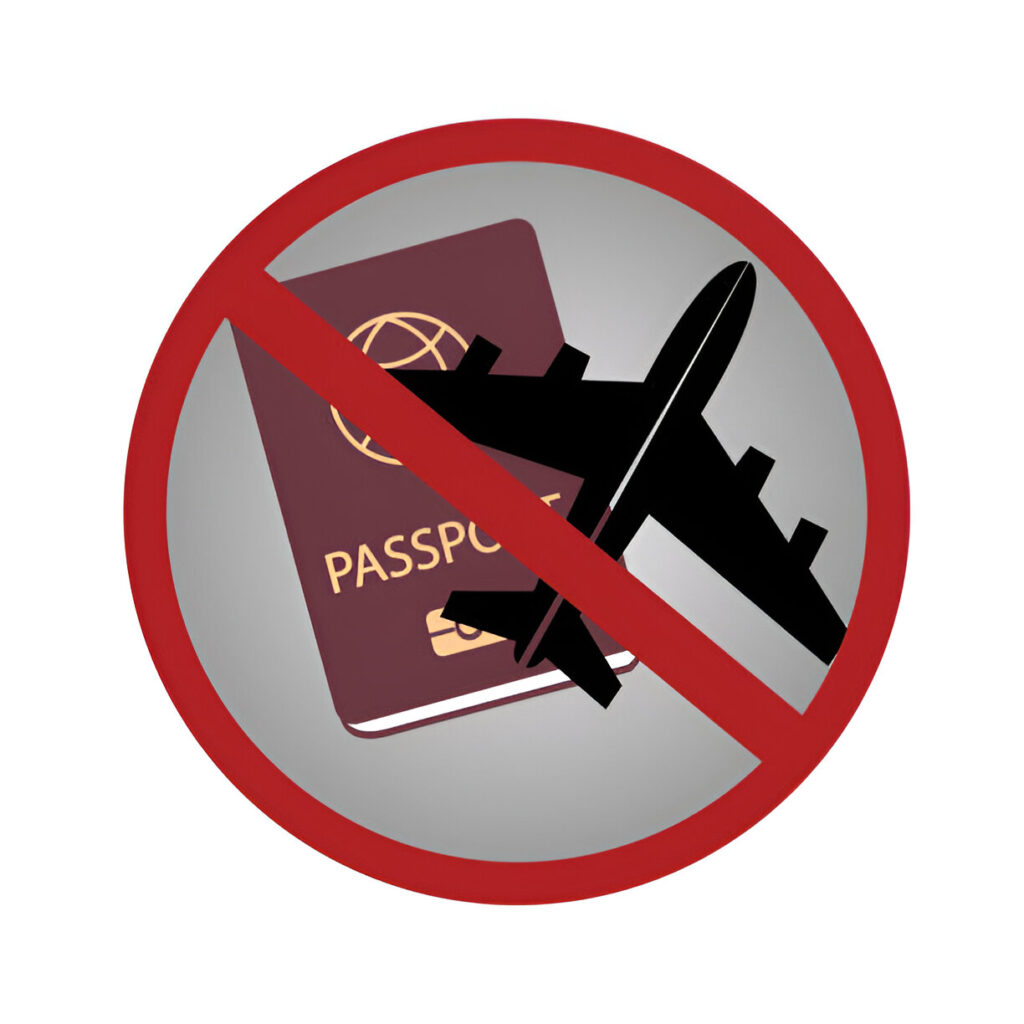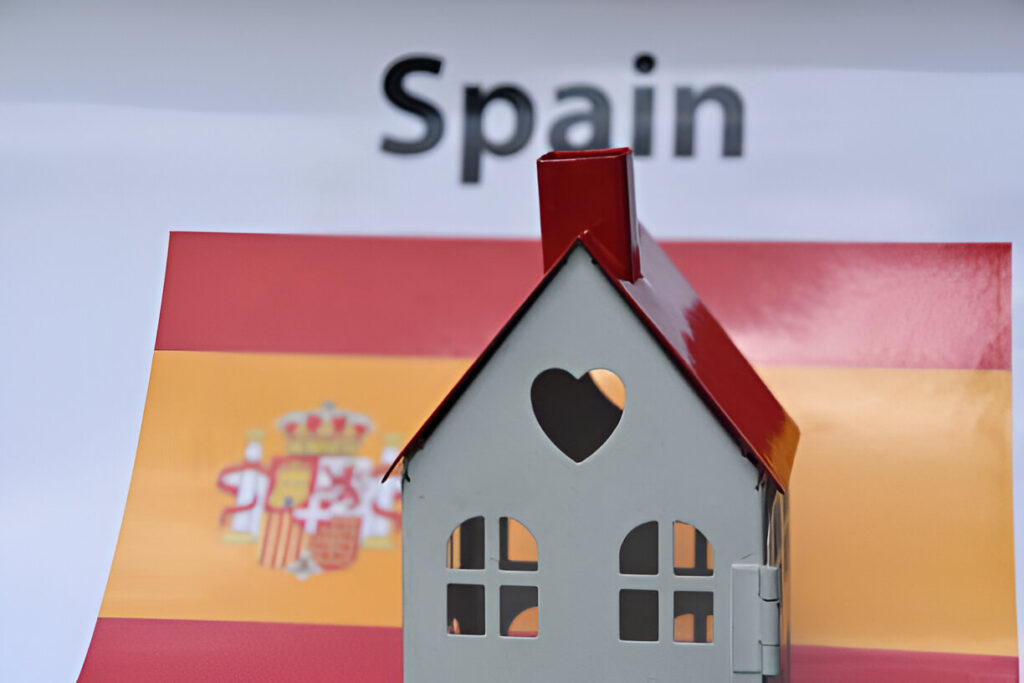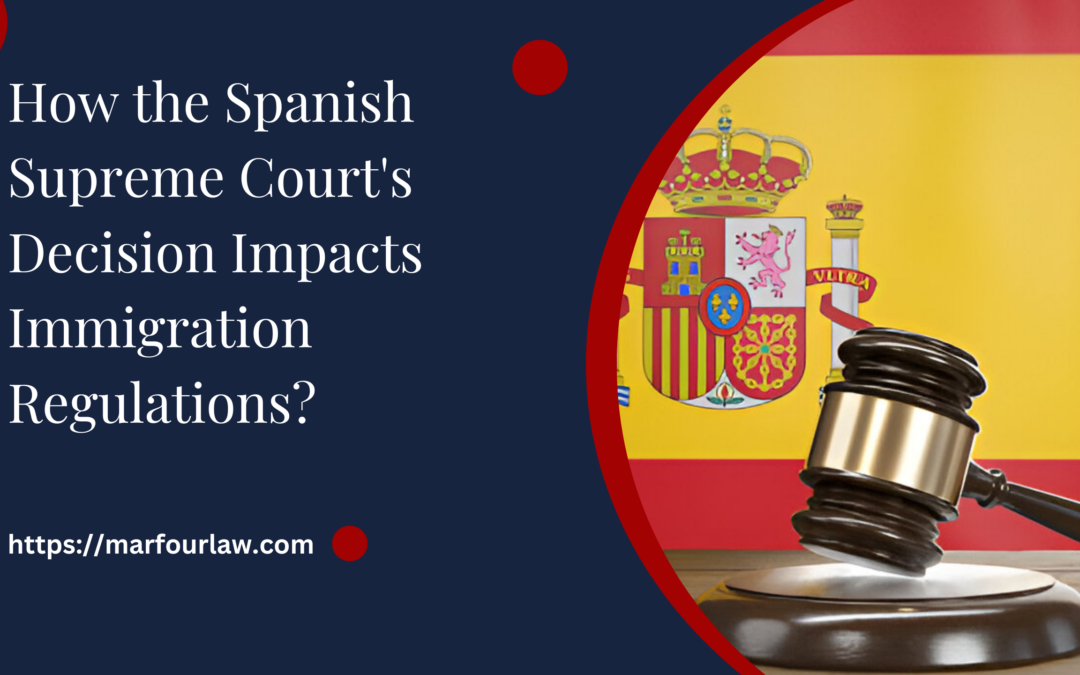The Spanish Supreme Court recently made headlines by revoking a significant immigration regulation, causing ripples across the country. What does this mean for directly affected people? This decision could change how immigration policies are enforced, potentially altering the landscape for those looking to move to or stay in Spain. With the court’s ruling, many are left questioning what comes next for Spain’s immigration system and how this shift will impact newcomers and current residents. It’s a pivotal moment that could reshape the future for many.
What Made the Spanish Supreme Court Revoke an Immigration Regulation?
The recent decision by the Spanish Supreme Court to revoke an immigration regulation has drawn significant attention. Let’s break down the details and explore the implications to understand why this ruling is important.
Background of the Regulation
To fully grasp the Supreme Court’s decision, it helps to look at what the regulation covered. Initially, this rule was established to regulate various aspects of immigration in Spain, such as the duration of stay for non-residents and the criteria for different types of visas, including work and student visas. Over time, however, it became evident that the regulation was not functioning as effectively as intended.
Key Problems with the Old Regulation
The Supreme Court identified several major issues with the regulation. The rule had become outdated and no longer aligned with current legal standards and practices. Many felt that it needed to be more flexible and accommodate the diverse needs of immigrants. Additionally, the regulation should have addressed more of the practical challenges people face trying to comply with its terms. This disconnect between the rule and real-world needs was a significant factor in the Court’s decision to revoke it.
What Happens Now That the Regulation is Revoked?
With the regulation no longer in effect, there is uncertainty regarding how immigration will be managed in Spain. The immediate impact is that the old rules are no longer applicable, which might lead to confusion for those involved. However, this change opens up an opportunity for Spanish authorities to develop new regulations that better meet the needs of both immigrants and the immigration system. The aim is to create fairer and more practical policies, which could result in a smoother process for handling residency and visas.

How This Decision Affects You?
If you live in Spain or plan to move there, this ruling could directly impact your situation. For individuals already residing in Spain, the revocation might change how your residency status is managed or how you must approach visa renewals or applications. For those considering moving to Spain, this decision means that the rules for entering and staying in the country might change. Keeping up-to-date with new developments will help you understand how these changes could affect your plans.
What to Expect in the Future?
As Spain moves forward without the old regulation, discussions will likely focus on what new policies should replace it. This presents an opportunity for the Spanish government to create updated rules more aligned with contemporary immigration needs. Staying informed about these upcoming changes will be important for anyone affected by Spain’s immigration system, as the new regulations will shape the future of residency and visa management in the country.
What do the New Residency Rules in Spain Mean for You?
Spain has recently updated its residency regulations, which could affect anyone looking to move to or stay there. These changes aim to make obtaining and maintaining residency clearer and more straightforward. If you’re considering moving to Spain or already living there, it’s important to understand how these new rules might impact you. Here’s a breakdown of the updates and how they might affect your plans.
Changes to Residency Requirements
The new rules introduce clearer criteria for qualifying for residency in Spain. This means you’ll need to meet specific conditions, such as proving your financial stability or spending a certain amount of time in the country. For many, this change simplifies the process, making it easier to understand what is required to stay in Spain long-term. Essentially, these updates aim to make the path to residency more transparent, reducing uncertainty and helping you plan your stay more effectively.
How do the new rules affect different types of visas?
Spain offers various types of visas, each with its own set of requirements. The recent updates impact all these visa types, including the popular non-lucrative visa for those who do not plan to work but have sufficient funds to support themselves. Under the new regulations, transitioning from a non-lucrative visa to permanent residency may become more straightforward. This means fewer hurdles and clearer steps for those looking to make their stay in Spain more permanent.

Impact on Your Residency Status
If you’re already residing in Spain or planning to move there, these new rules could influence your current or future residency status. The changes are designed to make it easier to maintain or achieve residency. By clarifying the requirements and processes, the updates aim to prevent surprises and ensure you can stay on top of your residency obligations without added stress.
Role of the 180-Day Rule
The 180-day rule is key to determining residency status, especially if you split your time between Spain and another country. This rule defines how much time you need to spend in Spain to retain your residency status. With the new regulations, the application of this rule might be clearer, helping you manage your time between Spain and other locations more effectively. Understanding this rule is crucial to ensure you remain compliant with residency requirements.
Preparing for the Transition
To adapt to the new rules, start by reviewing your current visa status and residency plans. Make sure you have all the necessary documents and understand the updated requirements. It might be helpful to seek advice from a professional to ensure you’re on the right track. Being proactive and informed will help you navigate the changes smoothly and ensure that your residency plans continue without issues.
Moving from a Non-Lucrative Visa to Permanent Residency in Spain
If you’re currently holding a non-lucrative visa in Spain and are considering moving to permanent residency, understanding the process can help you transition smoothly. The non-lucrative visa is often a starting point for many who wish to live in Spain but do not plan to work while they’re there. Here’s what you need to know to navigate this transition successfully.
What is a Non-Lucrative Visa?
A non-lucrative visa allows you to live in Spain without needing to work. This visa is perfect for those with enough savings, a steady income from outside Spain, or who are retired. You can enjoy Spain’s lifestyle without being tied to the local job market. Many use this visa as a first step toward eventually gaining permanent residency.
Eligibility Requirements for a Non-Lucrative Visa
You must demonstrate sufficient financial resources to support yourself without working in Spain. This visa is intended for someone other than those needing a job in Spain. Instead, it’s ideal for retirees, individuals with savings, or those with passive income.
Requirements for Transitioning to Permanent Residency
To transition to permanent residency in Spain, you must live continuously for five years and demonstrate financial stability. Additionally, showing integration into Spanish society is crucial for a successful application.

- Residency Duration: To qualify for permanent residency, you must continuously live in Spain for five years. This period can include time on other legal residency statuses, not just the non-lucrative visa. The five-year rule shows that you’ve made Spain your home significantly.
- Financial Stability: You must prove that you’ve been financially stable in Spain. This means you’ve been able to support yourself without relying on public funds. Financial stability is typically shown through bank statements, proof of income, and other relevant financial documents.
- Integration into Spanish Society: Being integrated into Spanish society is crucial for permanent residency. This could mean learning Spanish, participating in community activities, and following local laws. Integration shows that you’re not just living in Spain but are actively contributing to the community.
- Steps to Apply for Permanent Residency: Gather all required documents, including proof of residence, financial stability, and societal integration. Then, submit your application to Spanish immigration authorities and await processing.
- Gathering Necessary Documents: Before you apply, make sure you have all the required documents. This includes proof of your continuous residence, financial stability, and integration into Spanish society. Proper documentation makes the application process smoother and increases your chances of approval.
- Submitting the Application: Once your documents are ready, you can submit your application to the Spanish immigration authorities. This process involves filling out forms, attaching your supporting documents, and potentially attending an interview. Ensure all your information is accurate to avoid delays.
- Awaiting Approval: After submission, your application will be reviewed by immigration officials. Processing times can vary, so it’s important to be patient. Keep track of your application and be ready to provide any additional information that may be requested.
Marfour International Law Firm offers expert guidance to help you through every step of the process. Their team can assist in gathering necessary documents, ensuring your application meets all legal requirements, and providing personalized advice tailored to your situation. Trusting Marfour with your residency application can make the transition smoother and increase your chances of success.
FAQs
Can I work in Spain with a non-lucrative visa?
No, the non-lucrative visa does not permit you to work or engage in business activities in Spain. It’s meant for those who can support themselves without needing employment.
How long must I live in Spain before applying for permanent residency?
You must live in Spain continuously for five years before applying for permanent residency.
What financial proof is needed for permanent residency?
You’ll need to provide bank statements, proof of income, and other documents that show you can support yourself without relying on public funds.
Do I need to speak Spanish to get permanent residency?
While not mandatory, demonstrating integration, including learning Spanish, can strengthen your application for permanent residency.
How long does it take to get approved for permanent residency?
Processing times vary, but staying organized and responding promptly to additional requests from immigration authorities can help speed up the process.
Conclusion
Transitioning from a non-lucrative visa to permanent residency in Spain is a significant step that requires careful planning and preparation. By meeting the residency duration, proving financial stability, and showing integration into Spanish society, you can secure a more stable and long-term status in Spain. With permanent residency, you’ll enjoy expanded rights and opportunities, making your life in Spain even more fulfilling. Stay informed, prepare your documentation early, and consult with an expert if needed to ensure a smooth application process.

